Ready for Memory Wars: The Case of the HOS Memorial Plaque in Croatia

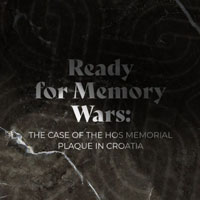
This paper focuses on Croatia and the use of hate speech and controversial symbols for the maintenance of symbolic boundaries, the reinforcement of a one-sided version of the past, and the mobilization of voters. The presence and use of the Ustaša salutation, “Ready for the Homeland” (Za dom spremni – ZDS) is a consistent example of those tendencies. In recent years, the salutation has become increasingly intertwined with the legacies of World War Two and the 1990s Croatian War of Independence, while simultaneously reflecting the rise of nationalism and radical-right parties and movements in Croatia as well as abroad. The paper presents insights into the ways ZDS is used to reify national identity, while centering around some of the main actors perpetuating this dynamic, such as politicians and war veterans. Accordingly, it focuses primarily on the case of the memorial plaque erected in 2016 by former members of the Croatian Defence Forces paramilitary unit, which included the ZDS salutation. At one point threatening to topple the government, the case demonstrates how the salute is used to maintain the dominant narrative of the Homeland War.






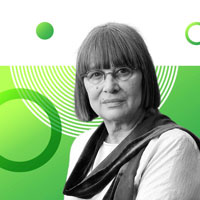

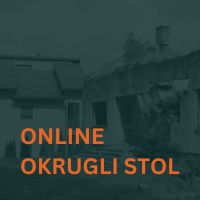
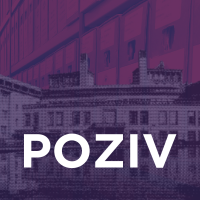

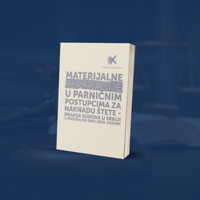
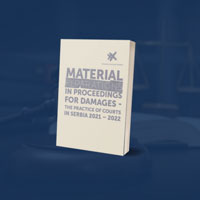 On Monday, 24 April 2023, Humanitarian Law Center (HLC) is going to present its report on “Material reparations in proceedings for damages – the practice of courts in Serbia 2021-2022 “ (the Report). The presentation will be held in the large hall of Media Centre Belgrade (Terazije 3, II floor), beginning at 12.30.
On Monday, 24 April 2023, Humanitarian Law Center (HLC) is going to present its report on “Material reparations in proceedings for damages – the practice of courts in Serbia 2021-2022 “ (the Report). The presentation will be held in the large hall of Media Centre Belgrade (Terazije 3, II floor), beginning at 12.30.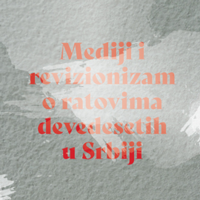
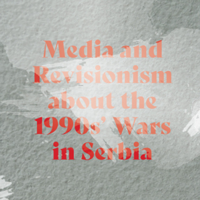 Following the regime change in 2012, the new authoritarian regime under the Serbian Progressive Party (SNS) put memory politics high on its political agenda. The revisionist history of the 90s’ wars now constitutes the primary source of its political legitimization. At the same time, the new government established a firm grip over media, leaving a few independent outlets still critical of the new memory politics. A majority of mainstream media operate in symbiosis with the regime, actively contributing to the new revisionist narrative. These narratives are further supported and accelerated in tabloid and alternative media, offering an even more radicalized version of the past. In such a mediascape, actors working on critical memory are limited to a few independent media outlets. At the same time, they are under constant threat from the regime and tabloids alike.
Following the regime change in 2012, the new authoritarian regime under the Serbian Progressive Party (SNS) put memory politics high on its political agenda. The revisionist history of the 90s’ wars now constitutes the primary source of its political legitimization. At the same time, the new government established a firm grip over media, leaving a few independent outlets still critical of the new memory politics. A majority of mainstream media operate in symbiosis with the regime, actively contributing to the new revisionist narrative. These narratives are further supported and accelerated in tabloid and alternative media, offering an even more radicalized version of the past. In such a mediascape, actors working on critical memory are limited to a few independent media outlets. At the same time, they are under constant threat from the regime and tabloids alike.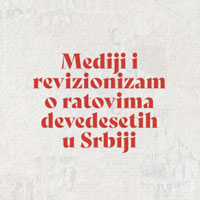
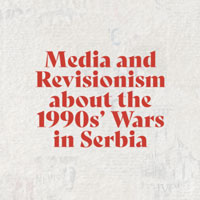 On Monday, 10 April 2023, at 6pm, in CROCODILE’s Centre (43 Karađorđeva St, Belgrade), Humanitarian Law Center is organising a discussion on the topic of Media and Revisionism about the 1990s Wars in Serbia.
On Monday, 10 April 2023, at 6pm, in CROCODILE’s Centre (43 Karađorđeva St, Belgrade), Humanitarian Law Center is organising a discussion on the topic of Media and Revisionism about the 1990s Wars in Serbia.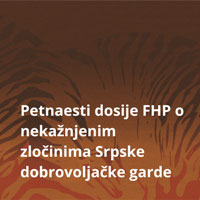
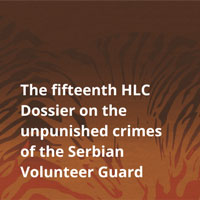 On Thursday, 23 March 2023, Humanitarian Law Center (HLC) launched its fifteenth dossier on potential war crime perpetrators during the wars in former Yugoslavia, The
On Thursday, 23 March 2023, Humanitarian Law Center (HLC) launched its fifteenth dossier on potential war crime perpetrators during the wars in former Yugoslavia, The